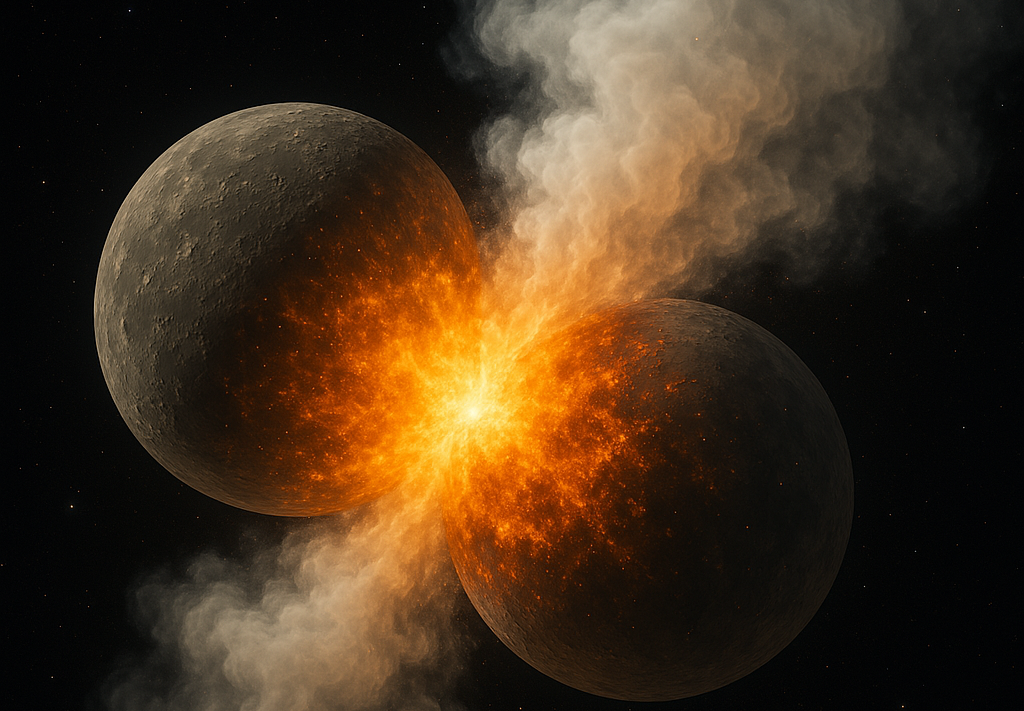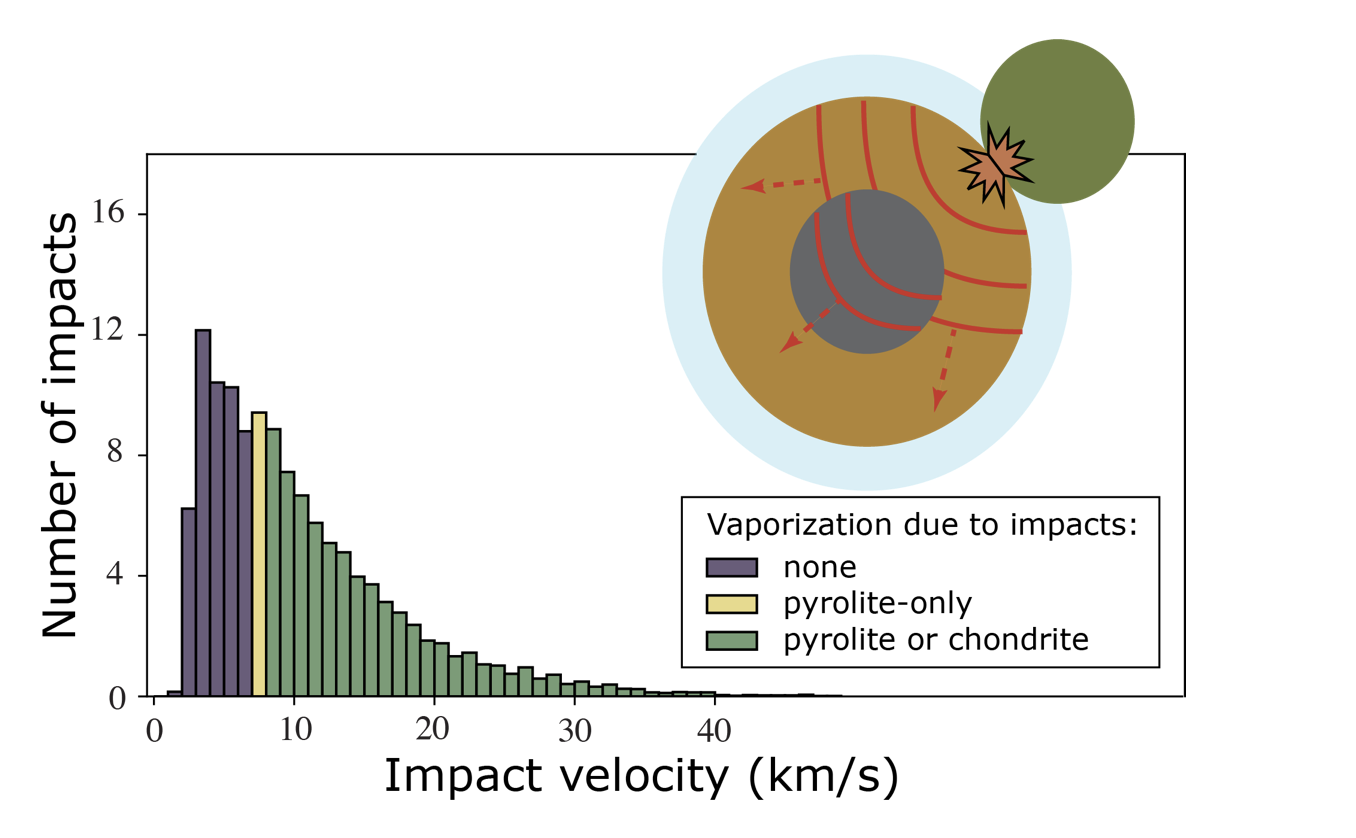Follow us on Google News (click on ☆)

Collision between two primitive planetary bodies during the accretion phase /
AI-generated image
Published in The Astrophysical Journal Letters, this research shows how giant impacts, a key process in the formation of terrestrial planets, can induce vapor production, thereby altering the geochemical characteristics of primitive planetary bodies.
Using first-principles molecular dynamics simulations, the team studied the shock behavior of silicate systems representative of planetary bodies like Earth and Mars.
The study introduced an innovative criterion for vapor formation based on entropy calculations, revealing that an impact velocity of 7.1 km/s (4.4 mi/s) is the minimum required to produce vapor in chondritic bodies. The simulations showed that vaporization occurred in up to 89% of impacts during the final stages of planetary accretion, significantly influencing the material properties and volatile content of forming planets.
This work highlights that vaporization is not limited to major catastrophic events like the Moon-forming impact but is common in smaller-scale collisions. These findings are important for understanding the distribution of volatiles and isotopic compositions of terrestrial planets. The study advocates for integrating the effects of vaporizing impacts into future planetary formation models, providing a more comprehensive understanding of the dynamics of the early solar system.

A significant proportion of impacts during planetary accretion leads to at least partial vaporization. This has important consequences for the volatile budget of forming terrestrial planets.